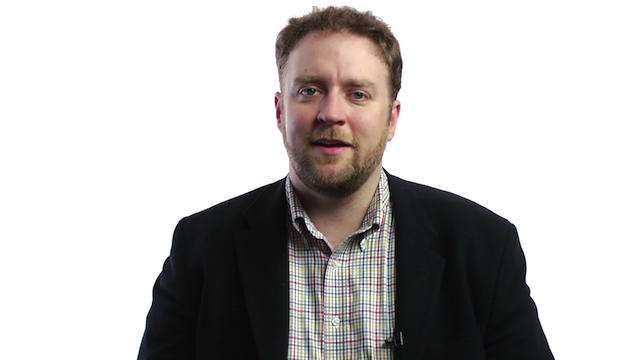Reincarnation as Political Will

UPDATE: Steve Jobs famously said, “Remembering that I’ll be dead soon is the most important tool I’ve ever encountered to help me make the big choices in life.” I wanted to explore this concept by substituting “death” with “reincarnation,” so I reached out to Dr. Paul DeBell, a past-life-regression therapist featured in the New York Times and author of Decoding the Spiritual Messages of Everyday Life: How Life Shows Us What We Need to Know. For more on the work of Dr. DeBell, please visit his site.
Has Hitler reincarnated as a lab rat thousands of times? Is Dick Cheney a young soul? Did Stalin flunk the “spiritual boot camp” that is earth?
These are scenarios I discussed with Dr. Paul DeBell, MD, a Cornell-trained psychiatrist with his own private practice on the Upper East Side. He’s a past-life regression therapist, having fallen into the specialty when he worked at a clinic in the South Bronx.
My first urgent question for Dr. DeBell: Given impending global warming, the fact that the world’s most powerful countries are corrupted by greedy oligarchs and military industrial complexes, and our oceans are choked by half a dozen swirling seas of plastic, how do I finally “graduate” and get out of here? If reincarnation is real, how can I make this life my last?
It turns out we’re the future generations we keep talking about. Since death isn’t the final liberator, according to Dr. DeBell, the ticket out is living life unflinchingly by the Golden Rule—treat everyone else as you would want to be treated. Working out your “golden rule” muscle makes it stronger over time.
“I am not surprised,” he says, “that given the complexity of trust or humility or applying the golden rule and the amount of progress I see myself and others making in one lifetime, that it takes many lifetimes to master them.”
One of his most useful regressions, he says, was finding himself a cave man suddenly killed by an animal attack, and was surprised that he was still alive. “I experienced,” he says, “that early phase of my soul’s development in a way that helped me come to terms with the very slow pace of development.”
After growing up in a religious Protestant household, he stopped believing in God at the age of 21. Two decades later, after spending most of his career as a psychiatrist in community clinics in New York City’s poorest neighborhoods, he met a spirit guide while practicing self-hypnosis. His exploration in soul self-knowledge reminded him of a feeling he had when he was around eight-years-old, and reading an article in National Geographic about reincarnation. Back then, “Something inside of me reverberated, and I knew it to be the truth.”
This level of self-searching, DeBell says, took him “a couple of years to learn, because I’m scientifically oriented.”
Fifteen years later, he would return to that childhood conviction by founding his own private practice, with his wife, Susan DeBell, where they walk patients through the lessons they’re still working out over lives. For anyone interested in past-life regression therapy, DeBell advises to focus on questions that feel important and have a curiosity about yourself. An open mind is necessary to silence the mental chatter. For those eager to graduate, DeBell recommends, “focus on the process instead of the goal. Any goal can limit us.”
So what happens to the Hitlers, Stalins, al-Assads, Jong-ils, Cheneys?
“God didn’t create Hitler,” says DeBell, “but he certainly created the situation for a Hitler. That is what free will is about.” As for the world’s “bad guys,” they are souls who simply flunked. “It’s like somebody who is put back a grade,” he says. “You find yourself as the big kid in kindergarten. That’s rather humiliating.”
In regards to, say, former Vice President Dick Cheney, America’s very own Mr. Potter of It’s a Wonderful Life, who drove us into war in Iraq and Afghanistan and profited from it, DeBell’s answer, “Dick Cheney could be a very young soul. His soul was dropped into power, and couldn’t handle it.” He added, “It’s not up to us to judge.”
What’s the ultimate punishment? “Coming back as animals is a punishment,” he says, surprisingly, “because you can’t learn. Being unable to learn is the ultimate punishment. It’s like being frozen, you’re trapped. Hitler could have been a lab rat thousands of times.”
In terms of looking at the world as a classroom, DeBell points to the age of one’s soul as playing an important factor, explaining, “There are different levels of learning. We’re not all the same age.” There are some people just getting turned on to spirituality, he says, who may buy a book, and others who see spirituality as the most important aspect of life on earth.
The ultimate goal is to think like your professor. This is achieved, he says, be focusing on the fact that, “Love means that we’re all equal. Through your thought you come closer to God. The more your thought is filled with love, the more your thinking is like your professor’s mind—like God’s.”
Image Credit: World Economic Forum





